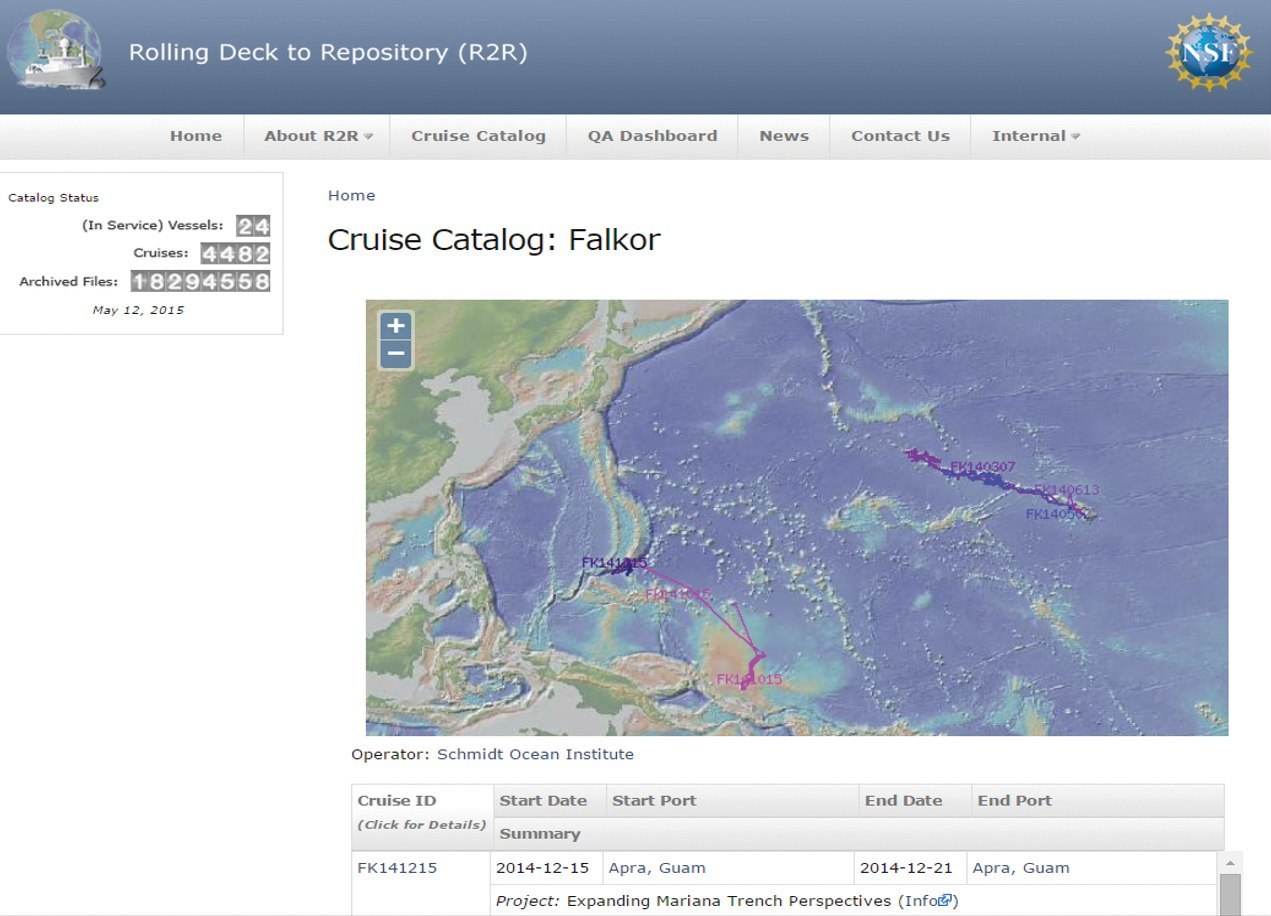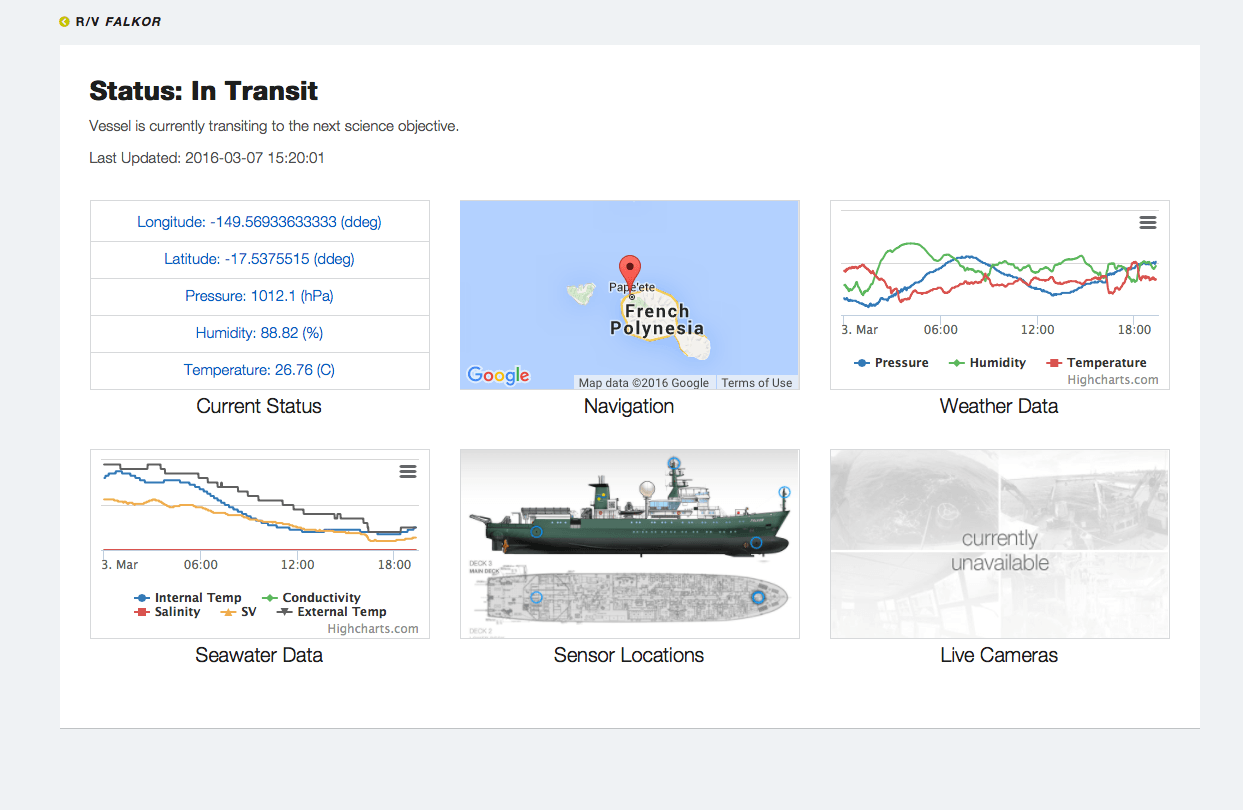Sharing data and communicating the outcomes is at the heart of Schmidt Ocean Institute’s core focus areas and mission statement. In 2015, we continued to broaden our network of partners and collaborators, especially in the area of data management and stewardship in order to help accelerate the pace of collecting and sharing data.
Sharing Underway Environmental Sensor Data
Earlier this year, Schmidt Ocean Institute signed on to share our underway environmental sensor data streams via the Rolling Deck to Repository (R2R) program. R2R is a national program led by Columbia University in partnership with Scripps Institution of Oceanography, Florida State University, and Woods Hole Oceanographic Institution, with support from the National Science Foundation (NSF), National Oceanic and Atmospheric Administration (NOAA) and Office of Naval Research (ONR). Following each Falkor cruise, the R2R team organizes the underway data, creates an entry in the national cruise catalog, submits the data to an appropriate long-term archive, creates standard products such as quality-controlled shiptrack navigation, and publishes a Digital Object Identifier (DOI) for the cruise that facilitates linking the cruise data with articles in scientific journals. Data from Falkor is the only privately-funded, global-ranging vessel to become part of the R2R archive. Schmidt Ocean Institute is the only organization that contributes an entire research vessel’s data to the MGDS archives. In September, Falkor was highlighted at the Ocean Data Interoperability Platform (ODIP) Workshop in Paris, France, as part of a multi-year/international effort to build a global catalog of research cruises.
Sharing Multibeam Bathymetry Data
Also led by Columbia University, the Integrated Earth Data Applications: Marine Geoscience Data System (IEDA: MGDS), has partnered with Schmidt Ocean Institute to curate and archive data collected onboard Falkor by its embedded submersibles and third party science instruments. Additionally IEDA: MGDS also curates processed data products for multibeam bathymetry, merges it into the Global Multi-Resolution Topography synthesis and publishes with Google.
Sharing the Status of Falkor in Real Time
Another new data sharing mechanism is the Falkor Status page on Schmidt Ocean Institute’s website. Users can now visit the website and learn whether the ship is currently at sea or in port. If the ship is at sea and collecting data, visitors can find out its position, weather data, seawater data, and learn more about Falkor’s sensors that are collecting all of this information. These data are pulled onto the web from Falkor’s Open Vessel Data Management System (OpenVDM), designed to help vessel operators manage the data created from a dizzying array of sensors and systems installed aboard research vessels. With Schmidt Ocean Institute’s support, OpenVDM has been able to provide a consistent end-of-cruise data package, while remaining flexible to a vessel’s evolving sensor technology. The system was developed to be open source, and recently was released for download on GitHub, an online software repository. Today, technicians from different vessels and institutions can work together to tackle the universal problem of managing shipboard sensors and data outputs by supporting the development of a single system.


